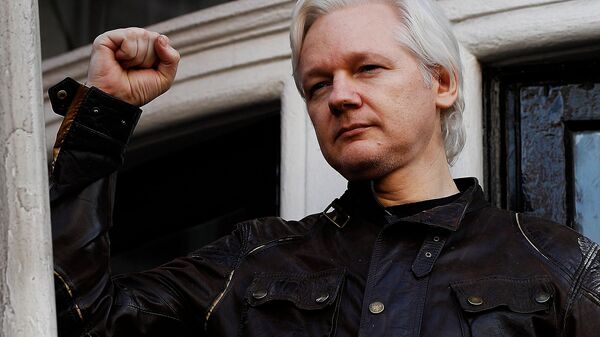The publishing algorithm, dubbed "Stochastic Terminator," was developed in the lead up to WikiLeaks' first release of Clinton campaign chairman John Podesta's internal emails in September 2016.
The algorithm was based on a random-number generator, modified by mathematical weights that reflected the pattern of the news cycle in a typical week. The term "stochastic" is mathematical, referring to something that has a random probability distribution or pattern that may be analyzed statistically, but not predicted precisely.
We have updated the Stochastic Terminator algorithim.
— WikiLeaks (@wikileaks) October 22, 2016
It was developed for the express purpose of making it difficult for the Clinton campaign to "adjust to the problem, spin, [or] create antidote news beforehand," Assange told a mainstream publication.
"Imagine it this way — the WikiLeaks tank is coming down the road. You can't tell when it got on the road, when it is going to get off, how fast it is going, how big it is — because it has a decoy exterior. They know there are decoy parameters because I say it, and so you never know what's a decoy and what isn't. It kind of paralyzes their thinking," Assange explained.
By being opaque about what information WikiLeaks had before it was released, Assange hoped to keep the Clinton camp on its toes, just as "Operation Mincemeat" — British intelligence's famous World War II ruse — led the Nazis to doubt any and all information they came across.
Assange recalled how a Clinton supporter noted there were no Podesta emails dated later than March 25, leading WikiLeaks to respond: "Well spotted, something to look forward to!"
This made clear there was a "next phase" impending.
While the interview marks the first time Assange has elucidated about "Stochastic Terminator" at length, WikiLeaks cryptically referenced the algorithm in October 2016.
Editorial: We are now publishing on a schedule created by our new impact maximizing publishing algorithm the "Stochastic Terminator". Enjoy.
— WikiLeaks (@wikileaks) October 12, 2016
Elsewhere in the interview, Assange expressed anger at persistent, baseless claims the emails had been hacked, and provided to WikiLeaks, by Russian intelligence, hitting out at the much-criticized January Director of National Intelligence assessment of alleged Russian involvement in the US presidential election.
"As far as WikiLeaks is involved, there is just one important sentence — there is just one — and it's so grammatically inexact it is really hard to work out what it is saying," Assange said.


